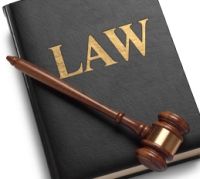

The Royal Society for the Protection of Birds (RSPB) has called for a change in the law in order to make it an offence to be in possession of poisons used to illegally kill wildlife. This comes after the charity said that there were 128 reports of birds of prey poisoned in the UK last year.
At the moment, Scottish law does address the issue, but the RSPB claim that the rest of the UK needs to tighten provisions in order to protect the birds. Although the number of reported incidents are lower than in 2009, some of the incidents are more serious.
For example, the figures show that for the first time in living memory, a golden eagle had been poisoned in Northern Ireland. Overall, the figures show that 30 buzzards, 20 red kites, two goshawks, eight peregrines, five golden eagles, one white-tailed eagle and a sparrow-hawk were found poisoned.
The Wildlife and Countryside Act 1981 provides protection for wild birds, and the Natural Environment and Rural Communities Act 2006 makes it illegal to possess a pesticide that contains an ingredient that is prescribed by the Secretary of State as harmful to wildlife. However, the RSPB are arguing that a list of which substances are controlled has not been published, and they believe a list of chemicals should be released.
Martin Harper, Conservation Director of the RSPB said, "If this government is serious about tackling illegal persecution of birds of prey, it really needs to start taking meaningful action. Putting additional controls on the possession of these common wildlife poisons would be a relatively easy first step, especially as these controls would not affect legitimate pesticide uses."
A spokesperson for the Department of the Environment, Food and Rural Affairs has said that the Government is considering the laws surrounding the possession of pesticides harmful to wildlife. They also said there are strict laws in place to protect birds, but they will work with conservation groups to crack down on those breaking the law.